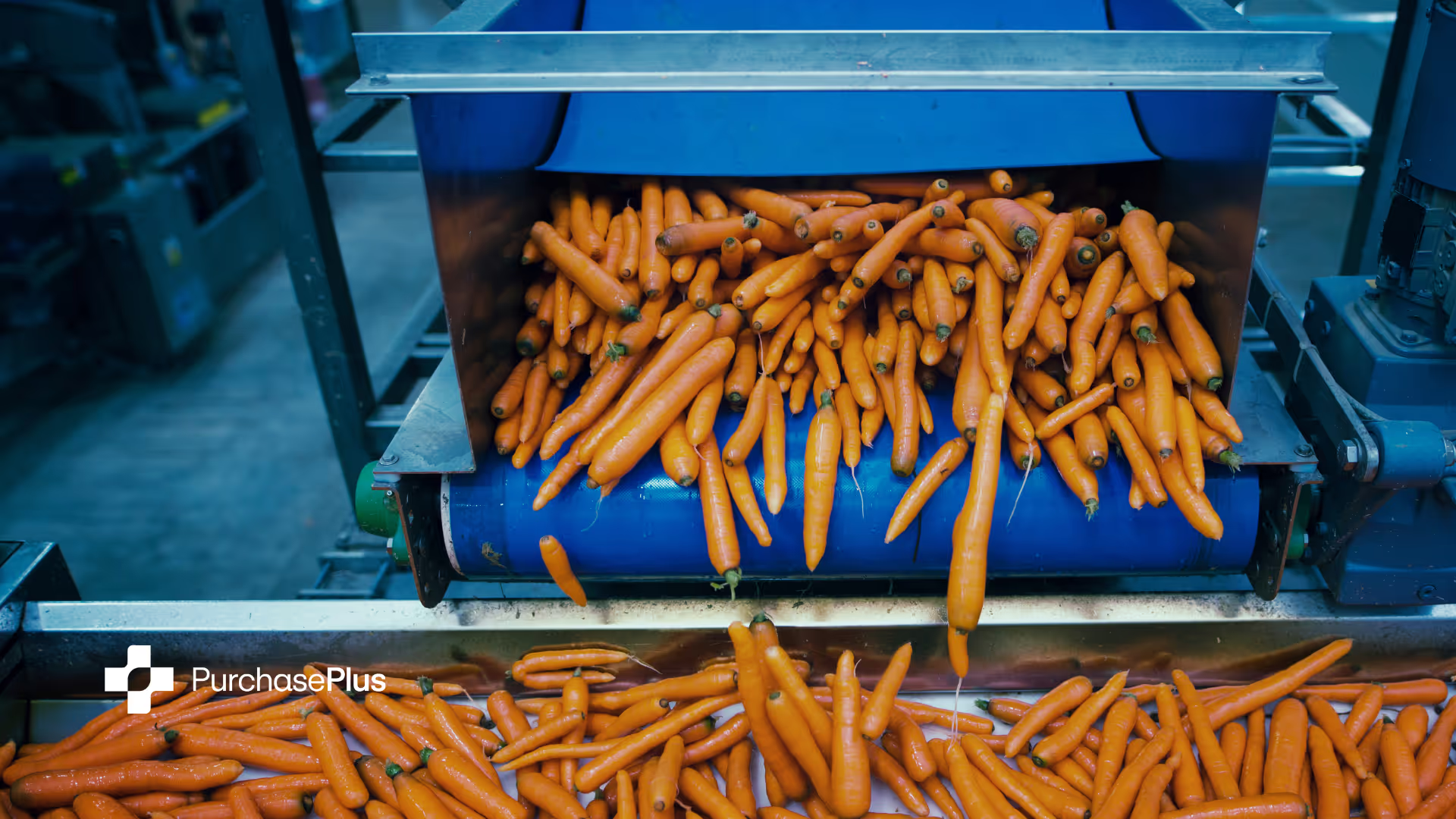Procure-to-Pay

Extreme Weather Causes Cocoa and Coffee Prices to Double and Further Food Price Volatility: Implications for the Hospitality Industry
.png)
5 Reasons Why Hotels Should Jump on the Local Purchasing Trend

Asia-Pacific Hotel Performance: Navigating 2025 with PurchasePlus
.avif)
Boosting Hotel's Restaurant Profitability in 2025

Enhancing Inventory Management in the Food Production Industry: Challenges and Solutions

Enhancing Sustainability in the $9 Trillion Hospitality Food Supply Chain

Hospitality Procurement Trends 2025: What's In and What's Out

Hotel Industry Forecast 2025: Development, Labor, F&B, and More

Hotel Profitability: The Ultimate Guide to Hotel Revenue Management

How to Increase Hotel Revenue: 7 Tips for Small Hotels

The food and beverage sector is facing unprecedented challenges as inflationary pressures drive up the cost of essential ingredients and operational expenses. Recent market data indicates a consistent upward trend, with key commodities experiencing significant price surges. According to the FAO Food Price Index, global food prices have risen by over 20% in the past two years, impacting businesses and consumers alike. The hospitality industry, operating on notoriously thin margins, is particularly vulnerable to these fluctuations. Industry analysts warn that these increases, driven by factors such as global trade disruptions, volatile energy costs, and extreme weather events, are not transient. Therefore, adopting strategic procurement practices is no longer an option but a necessity for survival and growth.
Decoding the Escalating Costs: Unveiling the Key Economic Drivers
Understanding the intricate web of factors contributing to rising costs is paramount for effective decision-making. Global supply chain disruptions, exacerbated by geopolitical tensions and logistical bottlenecks, have created shortages and price spikes. For example, the war in Ukraine has dramatically impacted the supply of wheat and sunflower oil, causing prices to skyrocket. In some regions, raw material costs have surged by as much as 25% over the past 18 months, forcing food service operators to drastically rethink their menus and budgets. A recent report by the National Restaurant Association revealed that 91% of restaurant operators have experienced significant increases in food costs. To mitigate these impacts, businesses must adopt data-driven strategies that enable early detection and accurate interpretation of market changes.
Proactive Planning in the Face of Volatility: Leveraging Predictive Analytics
In an era of unpredictable market fluctuations, advanced planning is a critical competitive advantage. By meticulously collecting and analyzing historical purchasing data, organizations can enhance their demand forecasting accuracy and negotiate more favorable contract terms with suppliers. Leading businesses are increasingly utilizing market intelligence dashboards that provide real-time alerts on potential disruptions. For instance, if a major coffee-producing region experiences a severe drought, the system will immediately flag a likely increase in coffee bean prices. This proactive approach allows businesses to strategically stock up on essential items or identify viable substitute ingredients, effectively minimizing the financial fallout from price volatility. A case study from a large hotel chain showed that they reduced their food costs by 7% by adopting a predictive analytics platform.
Real-Time Visibility: Harnessing Technology for Agile Procurement Decisions
Maintaining agility in the face of rapidly shifting markets requires leveraging cutting-edge technology. Cloud-based procurement platforms and advanced analytics tools provide managers with real-time insights into price fluctuations, shipping schedules, and inventory levels. Through sophisticated predictive modeling, these tools enable scenario planning, allowing hotels and restaurants to evaluate the potential outcomes of various sourcing decisions. A survey by Deloitte found that companies using advanced procurement technology reported a 15% reduction in procurement costs and a 20% decrease in stockouts. This enhanced efficiency translates to higher customer satisfaction and improved profitability.
Aligning with Evolving Consumer Expectations: Balancing Cost and Value
Today's consumers are increasingly discerning, placing a premium on quality, ethical sourcing, and sustainability. While price sensitivity remains a factor, businesses must strike a delicate balance between affordability and value. A strategic approach involves emphasizing the transparency, origin, and nutritional benefits of menu items, justifying any price adjustments. For example, a restaurant chain showcasing locally sourced, organic ingredients can command higher prices while attracting customers who prioritize authenticity and sustainability. A study by Nielsen revealed that 73% of global consumers are willing to pay a premium for sustainable products.
Building Resilient Supplier Ecosystems: Strategic Partnerships for Long-Term Savings
Cultivating strong supplier partnerships is essential for long-term success. These relationships foster trust, enhance communication, and drive innovation. Suppliers with robust environmental standards, advanced logistics, and reliable networks contribute to price stability. Businesses that establish long-term contracts often secure preferential pricing and priority allocations during periods of high demand. This collaborative approach mitigates the adverse effects of global events and ensures a consistent flow of essential goods. A real-world example is a catering company that partnered with a network of local farmers, securing a stable supply of fresh produce and reducing their reliance on volatile global markets.
Future-Proofing Your Business: Sustainable Procurement for a Volatile Market
Building resilience in the hospitality sector requires a multifaceted strategy. Hotels, restaurants, and catering services must develop robust procurement practices, data-driven forecasting, and a commitment to ethical sourcing. Embracing technology to streamline supplier management and purchase orders enhances operational efficiency and enables businesses to navigate economic uncertainties. Transitioning towards sustainable procurement practices reduces waste, strengthens brand reputation, and unlocks long-term cost savings. According to a report by the World Wildlife Fund, businesses that adopt sustainable procurement practices can reduce their environmental impact by up to 30%.
In this dynamic environment, PurchasePlus emerges as a vital tool for the hospitality industry. As a global buyer-supplier marketplace, PurchasePlus provides hotels and restaurants with real-time access to top-tier suppliers and integrated analytics tools. This platform empowers businesses to adapt swiftly to market changes, secure competitive pricing, and align with sustainability and quality standards. By leveraging PurchasePlus, organizations can enhance operational efficiency, boost profit margins, and deliver exceptional guest experiences in a market defined by rising costs and evolving consumer preferences.